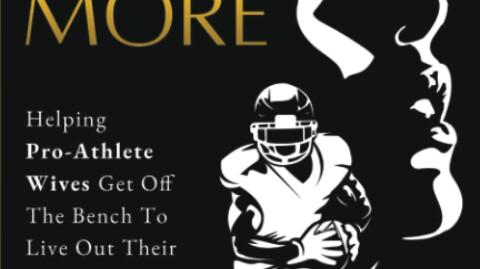It’s Monday, November 17th.
I’ve worked in ministry quite a long time. Much like Ecclesiastes 1 have seen seasons of joy and seasons of sorrow. Seasons of fruitfulness and seasons of emptiness. Seasons of energy and seasons of tiredness. The reality is that I will see those seasons again (not necessarily in that order).
All the outside factors play a different role in each of those seasons. The voices in my head change and the way I hear the voices around me changes too. Part of that is my own moodiness as an artist, some of that is my experiences that have informed the way I respond to situations, and some of that is the situations themselves. I am not claiming any expertise in this but I am drawing from some of my own experiences to come up with this list of 3 things that will destroy a worship leader. The list most certainly can be and should be longer, but I want to hone in on these 3 to help give voice to the craziness in my own head and what I assume is the craziness that other worship leaders feel.
1. Jukebox Syndrome (AKA request overload) - I’ll never forget working at a large church (not GBCC) and being told what I will and will not play for our programs. I am not opposed to suggestions, I am not opposed to being told that a song doesn’t connect like I think it does. What I am opposed to was the feeling like I didn’t matter. My contribution was simply a cog in a program machine. I checked out. “You want me to play a Foo Fighters song? Sure, I can do that. You want me to play this Twila Paris song? Sure, I can do that?” I could do it, I just didn’t want to, and my heart wasn’t engaged.
The cure for Jukebox Syndrome is more than just letting a worship leader have his way, or refraining from making requests, it's asking questions. “Where is your heart today?” “What songs are speaking to you, ministering to you even if they are not ‘Christian’ songs?” “How would you like people to respond to this song and how would you get them there?” Acquiescence is never the answer. A deeper emotional and spiritual dive is.
2. Comparison Allergy - I must preface this one with an honest reality check that this has so much more to do with the artistic temperament perhaps more than anything else so let me paint this scenario to help it make sense. “I just loved that song you played in church today, it was wonderful, it reminded me of my brother’s ex-wife’s cousin that was a worship leader back in Iowa where he used to live before he got a divorce and moved out to the east coast to experiment with a holistic spiritual healing/nudist colony, anyway he used to do that song all the time only he did it with a harp and it was really wonderful. Anyway, just wanted to tell you that I love that song.”
This story is made up, but I have had hundreds of very VERY similar ones. When I hear that, all I am thinking about is a naked hippie playing a harp and honestly wondering if maybe that WOULD be a better way to do that song. Even if it's for a fleeting second, I entertained the comparison and it etched away at my worth and identity. I need to own that, that's not anyone else’s fault, but it’s painful nonetheless.
There is not an easy cure because so much of the responsibility lies on the ears of the worship leader, but here are some suggestions to ward off Comparison Allergy. When complimenting a worship leader specifically when it's about a specific song, own what it is doing or has done in your own heart. “That song reminds me that God loves me and I’m not alone, I needed to hear that today, thanks for playing that song” or compliment the perceived intent of the worship leader. “You seemed to really be connecting with that song and that caused me to reflect more deeply in my own soul, thanks for that.” And if you really want to give your worship leader a boost while still comparing, say something like this: “I have heard that song thousands of times and I’m grateful for your willingness to keep playing it and to make it your own, no one else is just like you.” That may be a little pandering but that goes SOOO much farther than comparing to anther person or experience. Keep it in the present, in the here and now, and not in the “glory” days.
3. Perception Fatigue - Most worship leaders are musicians. Therefore most worship leaders are artists. Therefore most worship leaders are all over the map emotionally. That's what brings passion to the table. However, the most dangerous position for someone that is all over the map emotionally while trying to model and figure out matters of faith, is a stage. I try to go out of my way to be painfully, even awkwardly honest about my emotions while I’m on stage but I still, after almost 20 years, wrestle with this one. The perception is that because they are either a volunteer or paid staff person at a church that they have their spiritual crap together and therefore can be trusted with the authority to give wise spiritual counsel. I believe that the role of a worship leader (whatever that means) is one of a pastoral nature, however a lot of worship leaders don’t have the emotional maturity let alone the spiritual maturity to navigate that in a healthy way. That’s where the perception game kicks in. They/I want to be that spiritual icon and yet are tormented by their own sin and dysfunction. If not dealt with honestly, a worship leader can buy into the lie that they need to “perform” their faith on stage in order to be credible or to meet the expectations of a “worship leader.” This is tiring. The result of fatigue is devastating. When the weight of maintaining the perception becomes too great and they give in to fatigue, that is when moral failures, addictions, and job terminations happen.
The cure for Perception Fatigue is lots of counseling to get in touch with the root of emotions and a genuine, safe place to grow their faith outside of performance, outside of job, outside of anything other than getting to know Jesus and how much his love is transformational. I had a pastor that drilled into us almost weekly that “the truest thing about you is what God says is true!” When I know the truth of who I am based on what God says is true, perception is no longer a game, it’s something that is out of my control and therefore cannot be managed by my own devices. If I am soaking in the truth of what God says about me, you can perceive me however you want to, I’ll be OK.
Hopefully this is helpful. This was not a ploy to get compliments or to get some need met. It's just something that has been on my heart and mind for a while that I am trying to flush out.
What I’m listening to: Christmas music
Verse of the day: "Your word is a lamp unto my feet, a light on my path" Psalm 119:105
Music Nugget: Adaptibility. This past weekend was another great weekend both musically and with John Dickson speaking. At the 10 a.m. service, we had a near musical train wreck. My batteries died in my ear pack and so midway through the second song, I went dark. We were using click tracks on almost every song so now I was completely blind and I knew that I was going to drag everyone down with me, and I did. We fumbled our way through the rest of the song without too much damage but I knew that the start of the third song was going to require much adaptability. Kimberly Hoffman was starting the song and was already nervous about singing the solo to begin with, and I am pretty sure that she had no idea what was going on in my world and so I am trying to scream with my eyes and use some gestures to tell Pete on drums to not launch the click. I just start strumming the intro chords. Kimberly had to very quickly, without any warning, adapt to what was happening, she started singing and we weren’t quite on the same page rhythmically (understandably). She did the best thing anyone could have done in that situation, she just kept going. By her committing to the lyrics, it allowed me to adapt and sync up with her and we were back on track and finished the song well. This little split second decision made all the difference in that song either becoming a train wreck, or what it turned out to be, a well executed song given the less than ideal factors. I guess more than anything this is a little shout out to Kimberly who was nervous to begin with, composing herself like a pro when the unexpected happened. Good job Kimberly. It’s a great real life lesson in the importance of adaptability.



